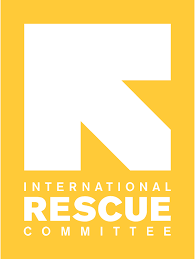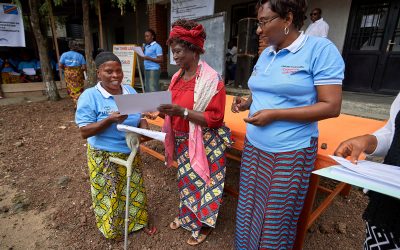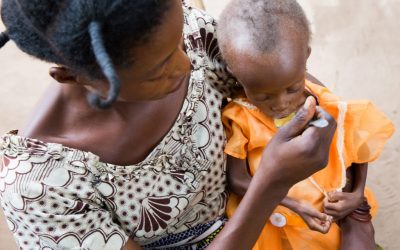Post-Exposure Prophylaxis kit procurement
in the democratic republic of congo
Improving the supply chain of post-exposure prophylaxis kits, or PEP kits, which reduce a survivor’s risk of contracting HIV and other sexually transmitted infections.
the PEP kits procurement project
Sexual and gender-based violence, or SGBV, remains a significant and endemic problem in the DRC and is exacerbated by the ongoing conflict in the central and eastern regions of the country. PEP kits reduce a survivor’s risk of contracting HIV and other sexually transmitted infections. Access to these critical treatments has been uneven and challenging. According to DHIS2 data collected at health centers, nearly 25 percent of health facilities in the country failed to provide PEP kits to some SGBV survivors from 2017 through the first quarter of 2018. This was true even when eligible cases presented for services.
Project Goal
The Post-Exposure Prophylaxis Kits Procurement Project, funded by the Office of U.S. Foreign Disaster Assistance, or OFDA, and implemented by IMA World Health, aimed to improve the supply chain for PEP kits in 16 provinces that all experienced a high prevalence of SGBV. A baseline assessment revealed that approximately 90 percent of health facilities across these 16 targeted provinces experienced a PEP kit stock-out that lasted longer than a week during the period of January to June 2018.
From July to October 2019 IMA facilitated access through the distribution and supply of 17,839 PEP kits in all 16 targeted provinces. The remaining 15,331 kits that were not supplied to health facilities due to procurement delays will be transferred to the new OFDA-funded PEP kit project, upon OFDA’s approval, and distributed to facilities by IMA, along with kits from the follow-up OFDA award.
Implementation Period
July 2018 to October 2019
Duration
16 months
Project Cost
$1,999,196
Donor
USAID’s Office of Foreign Disaster Assistance
15,324 SGBV survivors were treated during the 12 month period in 16 targeted provinces.
Procured pharmaceutical commodities
PEP kits assembled
SGBV survivors treated
Map
PEP KIT distribution
The project distributed 17,839 PEP kits to health zones and health facilities in 16 targeted provinces through partners, via the DPS of these provinces, per the pre-established distribution plan. This represents 53.5 percent of the total target of 33,370 PEP kits planned for distribution. To avoid creating a parallel pharmaceutical supply chain system in the country, IMA’s distribution strategy relied upon existing distribution channels and prioritized provinces with the highest prevalence of SGBV, particularly eastern provinces.
0
pep kits distributed
Provinces not targeted by the project.
196 to 500
pep kits distributed
These provinces received between 196 and 500 PEP kits.
500 to 1000
pep kits distributed
These provinces received between 500 and 1000 PEP kits.
1000 to 5755
pep kits distributed
These provinces had the highest prevalence of SGBV.
Percent of rape survivors treated over the course of the project

Partners
The project distribution strategy relied heavily on existing in-country distribution partners to supply PEP kits to health facilities. Partners were divided into three tiers of PEP kit recipients who would facilitate PEP kit delivery to health facilities and health zones.







“This project is a breath of fresh air for us. You cannot imagine the feeling of helplessness that I have had during previous years when a health zone called me to report a rape case which had sought treatment at the health center within the recommended timeframe, but there was no PEP kit with which to treat the victim.”
“Hearing about the PEP kits and the number of kits is one thing. For me, as someone who provides health care, this kit represents a vision of hope for someone who feels completely tarnished. The PEP kit allows them to believe in a tomorrow – without an unwanted pregnancy as a result of the rape, without HIV, and without a sexually transmitted disease. When [rape] happens once a year, it is bad. But, when it happens 100 times like it does here in Congo, it is too much. This support is a true blessing.”
read more about our work to alleviate sexual and gender-based violence
Gender & SGBV
Tushinde Technical Briefs:
Family Planning (pdf)
Mass Campaigns (pdf)
Psychosocial Care (pdf)
Trafficking-In-Persons (pdf)
Community-Based Trauma Healing (pdf)
Village Savings and Loan (pdf)
GBV Response Through Post-Exposure Prophylaxis Kit Procurement and Distribution IV - March 2023 (pdf)
ASSR - Gender Equality and Social Inclusion - June 2022 (pdf)
Tushinde Ujeuri - Counter Gender-Based Violence Program's HOLISTIC SEXUAL- AND GENDER-BASED VIOLENCE PREVENTION AND RESPONSE MODEL - May 2019 (pdf)
SGBV Response through Post-Exposure Prophylaxis (PEP) Kit Procurement and Distribution Phase II - February 2020 (English)(français)
PEP Kit Procurement in the DRC - January 2020 (pdf)
Girl Rising, ASSP-ENGAGE Final Report – March 2017 (pdf)
Quarter 1 Results
Number of pregnant women who received three doses of IPT while attending antenatal care:...
Saved by my Son: A Tushinde Ujeuri Success Story
"The support from the Tushinde program has restored my will to live." Tushinde Ujeuri Project...
Combatting Malnutrition in DRC: A Nutrition Success Story
Community relays in Ndesha, Kasai Central are successfully combatting malnutrition in the DRC...
QUICK CONTACTS
Recent Posts
Quarter 1 Results
Number of pregnant women who received three doses of IPT while attending antenatal care: 58,495Number and percentage of 1-yr-old children vaccinated against measles: 78,123Number of Couple Years of Protection (CYPs) achieved through family planning service provision:...
Saved by my Son: A Tushinde Ujeuri Success Story
"The support from the Tushinde program has restored my will to live." Tushinde Ujeuri Project brings hope to one survivor of sexual and gender-based violence in DRC It was mid afternoon, and my 10 year-old son and I were walking home from working in the fields. When...
Combatting Malnutrition in DRC: A Nutrition Success Story
Community relays in Ndesha, Kasai Central are successfully combatting malnutrition in the DRC thanks to ASSP's nutrition training. Combatting Malnutrition One Maman at a TimeMado Betu was a young child of two years and four months but was frail and unable to walk when...




